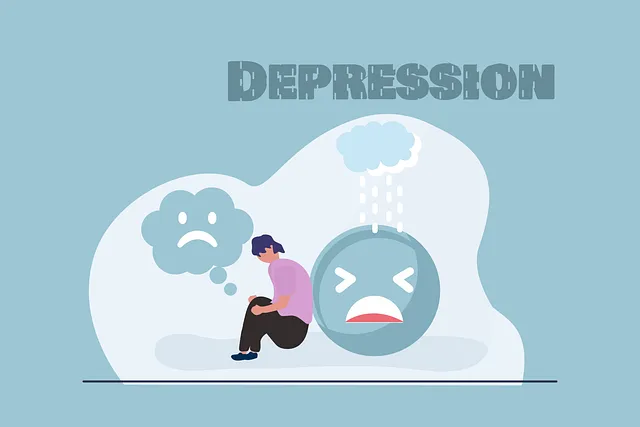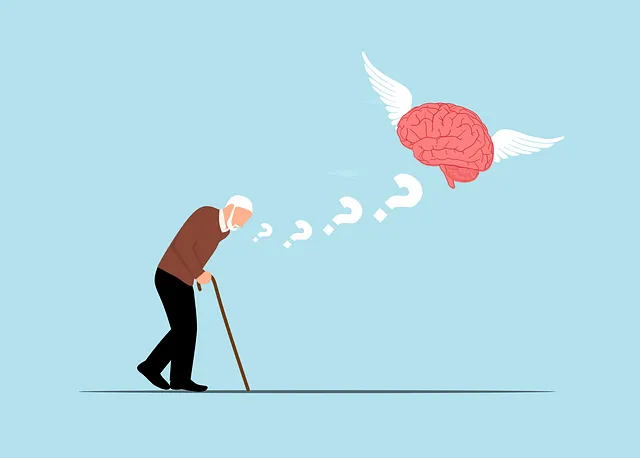In today's fast-paced world, mental wellness is often overlooked, leading to undiagnosed issues. The Kaiser Permanente Mental Health Access Center in Golden serves as a model for comprehensive care, offering diverse services and a holistic approach that improves patient outcomes. Effective self-assessment tools are crucial for early risk assessment and managing mental health. Integrating best practices, research findings, self-care routines, and empathy-building strategies, these tools can revolutionize mental health support. User Experience (UX) Design is key, emphasizing simplicity and engagement to encourage open discussion. Cultural sensitivity and diversity are also vital, ensuring tools are relevant and effective across diverse populations while adhering to healthcare best practices.
Mental wellness self-assessment tools play a crucial role in bridging gaps within mental health care, empowering individuals to proactively manage their well-being. This article explores the development of such tools, drawing insights from the Kaiser Permanente Mental Health Access Center, a leading model for comprehensive care. We delve into best practices, research findings, user experience design considerations, and implementation strategies, highlighting the Golden standard of cultural sensitivity and diversity in mental wellness assessments.
- Understanding the Need for Self-Assessment Tools: Highlighting the Gaps in Mental Health Care
- Kaiser Permanente Mental Health Access Center: A Model for Comprehensive Care
- Developing Effective Assessment Tools: Incorporating Best Practices and Research Findings
- User Experience Design: Creating Intuitive and Accessible Platforms for Self-Assessment
- Implementation, Evaluation, and Continuous Improvement: Ensuring Cultural Sensitivity and Diversity in Mental Wellness Tools
Understanding the Need for Self-Assessment Tools: Highlighting the Gaps in Mental Health Care

In today’s fast-paced world, mental wellness is a crucial aspect of overall health that often goes overlooked or undiagnosed. The need for effective self-assessment tools cannot be overstated, especially in addressing the current gaps within mental health care systems like those offered by Kaiser Permanente Mental Health Access Centers. Many individuals struggle with accessing quality mental healthcare services due to various barriers such as stigma, cost, and lack of awareness.
Self-assessment tools play a pivotal role in bridging this gap by empowering people to take an active role in understanding their mental wellness. These tools provide an initial point of reference for individuals to recognize potential issues and seek appropriate guidance. Incorporating resources like Social Skills Training, Mental Wellness Journaling Exercise Guidance, and Crisis Intervention Guidance into these self-assessment platforms can significantly enhance their effectiveness. By utilizing such tools, folks can better navigate their emotional well-being and access the necessary support in a timely manner.
Kaiser Permanente Mental Health Access Center: A Model for Comprehensive Care

The Kaiser Permanente Mental Health Access Center in Golden serves as a shining example of comprehensive mental wellness care. This center has pioneered innovative approaches to addressing diverse psychological needs, offering a wide array of services under one roof. From individual therapy sessions to group support programs and specialized workshops on topics like emotional regulation and social skills training, the center caters to various demographics, including children, adolescents, and adults.
The success of Kaiser Permanente’s model lies in its holistic perspective, integrating evidence-based practices with a focus on Mind Over Matter principles. By providing accessible resources and fostering an inclusive environment, they empower individuals to take charge of their mental health journeys. This strategic approach has significantly improved patient outcomes and highlighted the potential for transformative change within the healthcare system, setting a benchmark for future developments in mental wellness self-assessment tools and comprehensive care.
Developing Effective Assessment Tools: Incorporating Best Practices and Research Findings

Developing effective mental wellness self-assessment tools is a multifaceted process that incorporates best practices and leverages research findings from reputable sources like the Kaiser Permanente Mental Health Access Center. These centers often serve as beacons for evidence-based strategies, promoting Golden opportunities to enhance mental health support. By integrating insights from leading experts, these tools can be tailored to address diverse psychological needs.
Self-Care Routine Development for Better Mental Health and Empathy Building Strategies are key components that can be incorporated into such assessments. Research suggests that promoting self-care practices empowers individuals to better manage their emotional well-being. Additionally, risk assessment strategies for mental health professionals are essential, ensuring they can identify potential challenges early on and implement appropriate interventions promptly.
User Experience Design: Creating Intuitive and Accessible Platforms for Self-Assessment

User Experience Design plays a pivotal role in developing effective mental wellness self-assessment tools, ensuring they are intuitive and accessible to all users. The platform should be designed with simplicity and ease-of-use at its core, especially when catering to individuals seeking support through resources like the Kaiser Permanente Mental Health Access Center. By following Mind Over Matter principles, the design process focuses on creating a seamless experience that encourages open dialogue about mental health.
This involves employing clear navigation, simple language, and uncluttered interfaces. The goal is to guide users through self-assessment processes without overwhelming them. Additionally, incorporating interactive elements and visual aids can enhance engagement, making complex concepts more digestible. For instance, Stress Management Workshops Organization has successfully utilized this approach in their programs, demonstrating that a well-designed platform can significantly impact user access and participation in mental wellness coaching initiatives.
Implementation, Evaluation, and Continuous Improvement: Ensuring Cultural Sensitivity and Diversity in Mental Wellness Tools

The development of mental wellness self-assessment tools is a multifaceted process that requires careful consideration of implementation, evaluation, and continuous improvement strategies. At the heart of this process lies the imperative to ensure cultural sensitivity and diversity, particularly when drawing from the expertise of centers like the Kaiser Permanente Mental Health Access Center Golden. This approach not only aligns with best practices in healthcare but also ensures the tools’ relevance and effectiveness across diverse populations.
By integrating principles of cultural competency, these self-assessment tools can be tailored to address unique mental health challenges within different communities. For instance, incorporating elements of Risk Management Planning for Mental Health Professionals allows for proactive risk assessment and mitigation strategies. Moreover, including components focused on Coping Skills Development and Social Skills Training can empower individuals from various backgrounds to navigate their mental wellness journeys effectively. This inclusive design fosters a sense of belonging and encourages the adoption of evidence-based practices, ultimately enhancing the accessibility and impact of mental health support.
The development of mental wellness self-assessment tools is a vital step towards enhancing accessibility and quality in mental health care. By learning from models like the Kaiser Permanente Mental Health Access Center, we can create effective, user-friendly platforms that bridge the gaps in current services. Incorporating best practices, research findings, and a focus on cultural sensitivity ensures these tools serve diverse populations. The Golden standard lies in intuitive design and continuous improvement, allowing individuals to take control of their mental wellness and access appropriate support when needed.






